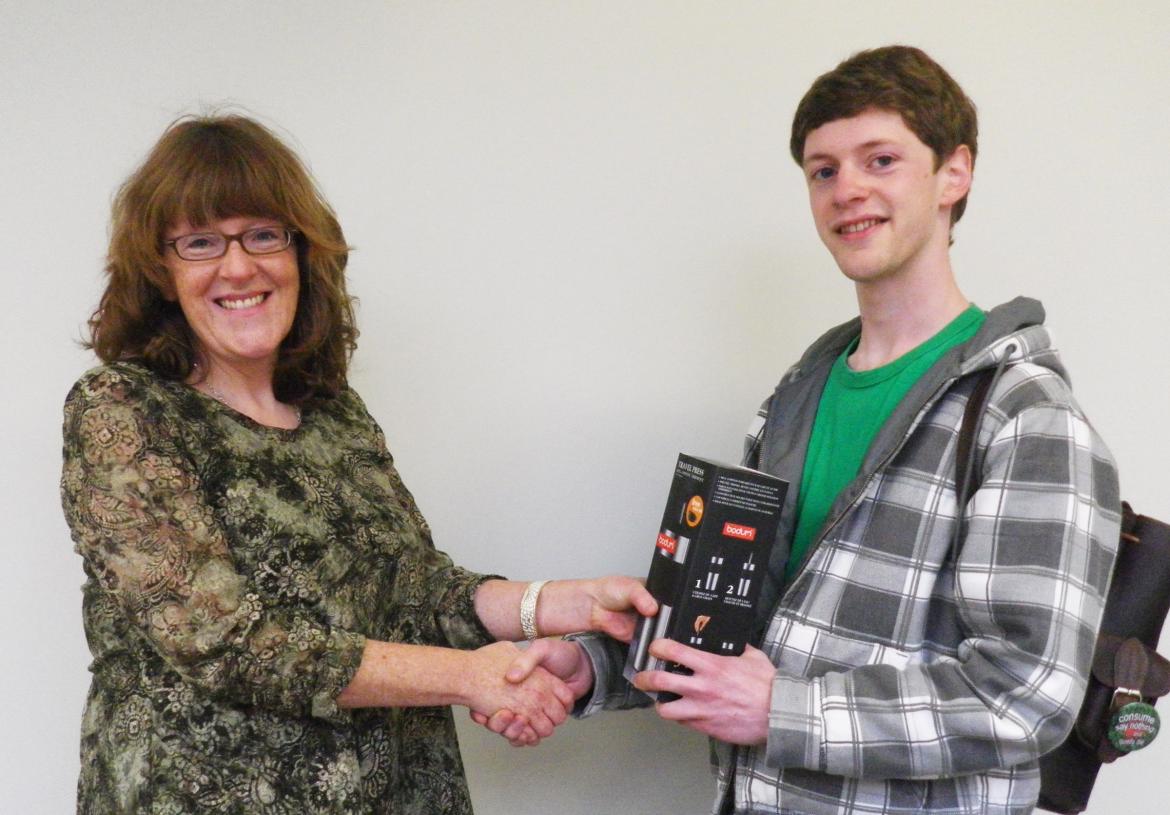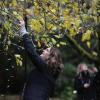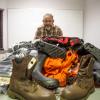
May 18, 2011 - 4:13am
Travis Martin didn’t have to look far for a bright idea when Vancouver Island University held a contest to find inspiration for a way to save energy.
The third-year student from Lunenburg County, Nova Scotia, had an Earth Science class in VIU’s Faculty of Management building which is often bathed in sunlight.
Martin suggests a “natural-lighting” campaign for the university with students, faculty and staff encouraged to turn off the lights when the sun is already doing the job.
Martin’s suggestion is one of 225 ideas submitted to the Energy Conservation Contest promoted by VIU’s Facilities Services and Campus Development.
“There was quite an astounding response. You can see that people really care and notice what’s going on at the university,” says Michele Patterson, Manager, Environment and Sustainability for VIU.
VIU is investigating how to implement the winning suggestions, and many of the other excellent ideas received in order to help meet its greenhouse gas emissions targets and to save money spent on gas and electricity.
Martin is one of five winners in the contest. His entry was judged best in the Behaviour Change category.
Martin, who is majoring in Biology and minoring in Geology at VIU, has had a long-standing interest in environmental issues. The Bridgewater area and Lunenberg County where he grew up are known for their recycling and composting programs, he said.
He is interested in the use of light tubes that can bring natural light to basements. “That got me thinking about how much sunlight comes into our classrooms,” he says. Several classrooms at VIU have more than enough natural light and Patterson says the university is looking at ways to raise awareness about the use of natural light and encourage building occupants to turn the lights out if they are not needed.
Martin, who will return to his studies at VIU in September, is glad to hear that his suggestion will lead to action. “I want to use my education to live a more efficient life, educate others and develop more ideas about how humans can reduce their impact on the planet,” he says.
Other winners, and their suggestions, are:
Christine Sheppard (Short Term Operational Improvements): Turn the heat down by at least two degrees in every room and building. It is easy enough to put on a sweater.
LA Shibish (Long Term Planning and Capital Improvements): Perform a scan of the buildings using infrared technology to identify areas where there are large quantities of heat escaping during the winter months. From the data collected on the scans, prioritize the buildings for a preventative heat loss program, and implement measures to address the heat loss (ie: replace inefficient windows and doors, add insulation, and add weather stripping to gaps.)
Cody Broda and Corbin Gislason (Long Term Planning and Capital Improvements Special Award for Detailed and Costed Submission): Harness and re-use heat energy emitted by the waste systems of the school cafeterias (dishwasher pipes/ovens, furnace exhausts). The cafeteria uses lots of energy to heat ovens, cook food, and to run dishwashers. The amount of energy required to run these appliances is substantial. The dishes are washed many times a day and the ovens are constantly in use. When the heat runs through the oven and out of the exhaust pipe, or the hot water flows out the effluent pipe on the dishwasher, the heat energy is wasted and let off into the atmosphere. This is very inefficient. The wasted heat energy can be recovered with a simple system and reused, which in turn will reduce the amount of energy used to heat the water and will reduce the usage of water. This will also reduce the amount of greenhouse gases emitted since less energy (gas or electric) would have to be used to heat the water.
Note: This was an optional assignment for Geography 101, taught by Brian Roberts
Tags: In the Community






